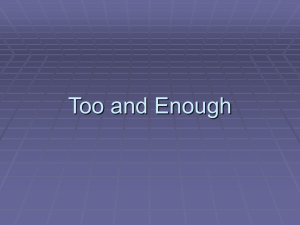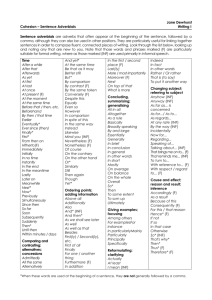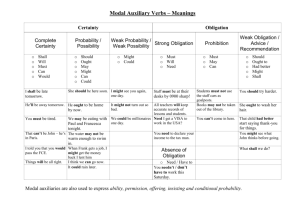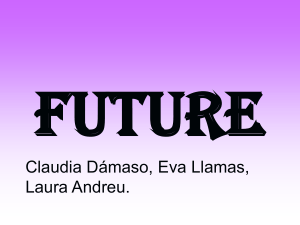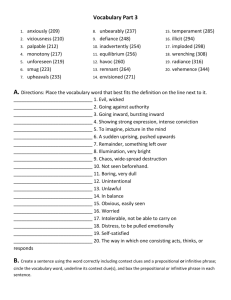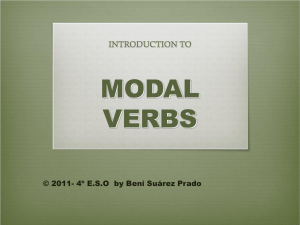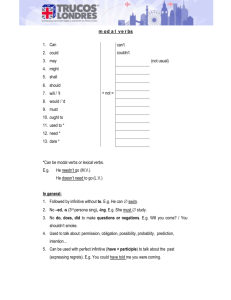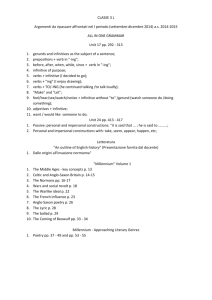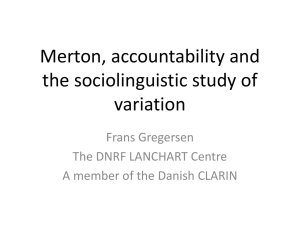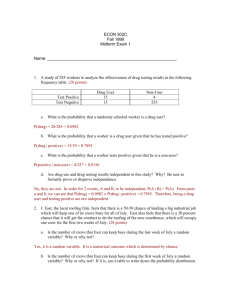MODAL AUXILIARY VERBS
advertisement
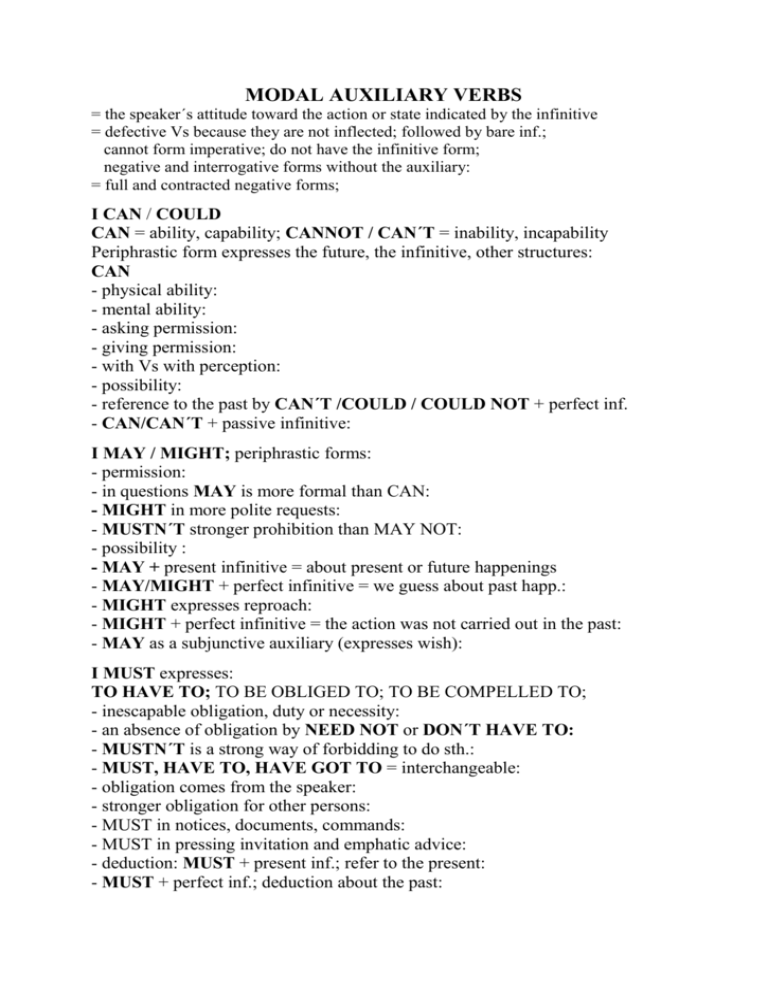
MODAL AUXILIARY VERBS = the speaker´s attitude toward the action or state indicated by the infinitive = defective Vs because they are not inflected; followed by bare inf.; cannot form imperative; do not have the infinitive form; negative and interrogative forms without the auxiliary: = full and contracted negative forms; I CAN / COULD CAN = ability, capability; CANNOT / CAN´T = inability, incapability Periphrastic form expresses the future, the infinitive, other structures: CAN - physical ability: - mental ability: - asking permission: - giving permission: - with Vs with perception: - possibility: - reference to the past by CAN´T /COULD / COULD NOT + perfect inf. - CAN/CAN´T + passive infinitive: I MAY / MIGHT; periphrastic forms: - permission: - in questions MAY is more formal than CAN: - MIGHT in more polite requests: - MUSTN´T stronger prohibition than MAY NOT: - possibility : - MAY + present infinitive = about present or future happenings - MAY/MIGHT + perfect infinitive = we guess about past happ.: - MIGHT expresses reproach: - MIGHT + perfect infinitive = the action was not carried out in the past: - MAY as a subjunctive auxiliary (expresses wish): I MUST expresses: TO HAVE TO; TO BE OBLIGED TO; TO BE COMPELLED TO; - inescapable obligation, duty or necessity: - an absence of obligation by NEED NOT or DON´T HAVE TO: - MUSTN´T is a strong way of forbidding to do sth.: - MUST, HAVE TO, HAVE GOT TO = interchangeable: - obligation comes from the speaker: - stronger obligation for other persons: - MUST in notices, documents, commands: - MUST in pressing invitation and emphatic advice: - deduction: MUST + present inf.; refer to the present: - MUST + perfect inf.; deduction about the past: SHALL expresses: - volition (mostly for 1st sg.): - in questions = obligation: - in questions = suggestions: - insistence, threat: - in legal documents- in 2nd, 3rd person in contracts, treaties: SHOULD - in reported speech („I shall stay there longer“): - in offers, suggestions, requests: - escapable obligation, duty: - probability: - after if and in case = possibility: - recommendations from an outside authority: - subjective opinion connected with: OUGHT TO = more objective force, talk about laws, duties, regulations SHOULD/OUGHT TO+perf. inf.=the past; action wasn´t carried out: - OUGHT TO + perfect inf. = probability in the past: WILL expresses: - prediction about the future: - prediction about the present (=MUST for deduction): - habitual predictive meaning in conditional: - prediction in a way of giving orders: - willingness to do sth.: - intention to make promises or threats: - to make requests or to give orders: WILL+perfect inf.=logical deduction about the past(MUST+perf.inf): WOULD = past form, in reported speech: - to talk about past habits + characteristic behaviour (never with state V): - as conditional: - more polite request than WILL: - after I wish / If only I ... expresses willingness: MARGINAL MODALS / SEMI-MODALS NEED = in the negative; - in Yes/No questions: - after negative adverbs (hardly, seldom, scarcely, rarely): - in formal style, expressing doubts: - in informal use = ordinary (lexical) V form: NEEDN´T + perfect inf.= sb did it but it was not necessary: Compare: DARE: - in questions - in negatives: - with bare inf.: - with a full V: - in informal style: the negative DAREN´T: YOU DARE! or: DON´T YOU DARE! = to discourage people from doing - I DARE SAY = probably: USED TO =PAST habit = only in the simple past form: also with state V: - USED NOT or USEDN´T: = in the negative; = in questions: However, DID is more common in the negative or in questions:
